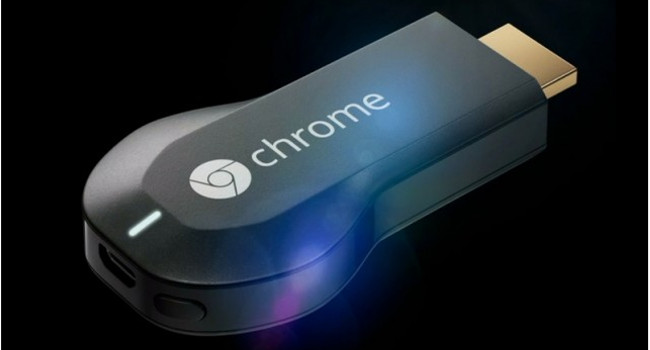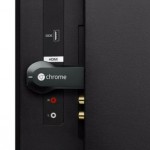With stablecoins gaining traction and regulation improving, African merchants may be nearing a crypto tipping point. Here’s why 2026 could mark a shift from hesitation to adoption.
Google’s Chromecast is small, cheap and simple but is it that cheerful?


Revealed earlier this week at Google’s I/O event, the Chromecast HDMI dongle seems like a simplistic, cheap alternative. It is, however, part of an extremely complicated plan of how Google wants to eventually dominate our TVs. Essentially what Chromecast does is turn your TV into a smart-TV that you can remotely control via your smartphone or laptop via WiFi. Is this really a viable competitor?
It’s almost too early to tell really. The US$35 dongle device is challenging competitors such as Apple TV, Roku and the very cheap Sky Now TV which was recently launched as the Roku 2. Apple TV supports the on-demand iTunes streaming and other apps including Netflix and YouTube. For now at least, the device can’t possibly compete or be adequately compared to other variants because of how limited it’s service offerings are.
There are currently only a handful of services available to Chromecast users and the attractive US$11 three-month free Netflix subscription that came with has been pulled back because of “over-demand.” Having said that, with the affordability of Chromecast, Google hopes to lure developers in with its free SDK, used to implement third-party software streaming to the HDMI dongle.
http://youtu.be/cKG5HDyTW8o
Although a bit sketchy, one of the product’s features is the Chrome tab projection option which mirrors webpages from the Chrome browser. There were reported problems with things like audio syncing but as Google TV director Rishi Chandra told the Verge, “[Google’s] stance right now, what we’re enabling, is no different from an HDMI cable connecting your laptop to your TV.” Though it’s also said to be a “stripped down” version of Chrome OS that only supports HTML5 video, audio and flash.
International availability is slim. As reported by The Next Web, Google said that it’s “very committed to serving our users in more countries but [has] no plans to announce at this time.” In that case you’ll have to stick to Apple TV or Roku or check out how to beef up your home media center and your Xbox.
Chandra also said that this initiative is “making a bet, and it’s a pretty aggressive bet.” Duly noted. Google has an extensive background when it comes to its TV service dominance plan.
Gearburn recently reported on a private event held by Google early this year where officials demonstrated an Android set-top box. This apparently had a motion sensor and web cam in order to support Google Hangouts and other apps such as Google Play video, Netflix, YouTube an, more importantly, Android games.
Other rumours suggest that Google is hiring TV programmers and buying TV licenses. The WSJ also suggested Google’s aspiring to join the web streaming hype, in effect bypassing traditional cable.
Going back even further, Google’s much-unloved Nexus Q device-orb-thingy was also meant for digital streaming but failed dreadfully. Although very early to tell, does the Chromecast feel like something ready to compete with Apple TV and Roku, or is it destined to be piled up with the Nexus Q?

